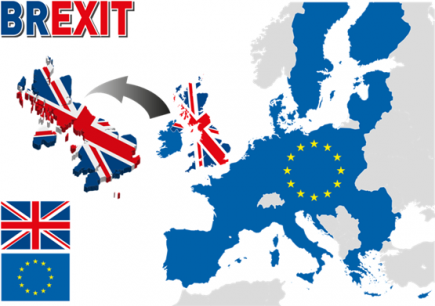The Brexit negotiations have been in the news a lot lately.
This is a hotly-debated political issue that could have a massive effect on the future of everyone in the UK. In Manchester, around 60% of people voted against Brexit, while in the North West in general over 53% voted to leave the EU.
Now that it appears inevitable, what could Brexit mean specifically for Manchester? Is this something that is going to cause major problems for the city and the surrounding area, or is Manchester likely to be less affected than other parts of the country?

(image courtesy of Duncan Hull via Flickr, with thanks)
The figures revealed so far
It is worth remembering that the Brexit negotiations to date have had a major effect on the financial markets such as the GBP/EUR currency rate and the FTSE 100 stock market prices. What is more difficult to understand is the exact effect it will have on Manchester.
In March 2018, the UK Government revealed their post-Brexit analysis for different regions of the country.
Among the figures was the prediction that economic growth in the North West could drop by up to 12%. The fact that the North of England is heavily dependent upon EU markets makes this part of the country especially vulnerable.
Personal preference aside, it was also said that the economy in Greater Manchester could lose £7billion each year with a hard Brexit.
Analysts suggest that area has already been affected by the uncertainty around Brexit, with unemployment rising in the last couple of years.
The latest news
Yet, it seems as though these predictions are now out of date. At a meeting of the combined authority, Manchester council leader Sir Richard Leese pointed out that he believes that the Government have updated their figures.
Yet, he says that they “are refusing to release that information.”
It is also interesting to note how the build-up to Brexit has helped bring Manchester’s devolution plans to the fore. This has been called the “best answer” to Brexit by Manchester Mayor Andy Burnham.
He believes that the responses to the challenges thrown up by Brexit should be made locally.
So far, Manchester has provided the most comprehensive devolution deal in England and it will be interesting to see whether this helps to mitigate the possible effects of a potentially hard Brexit.

(image courtesy of Pixabay, with thanks)
What does the future hold?
It is clear that the future remains uncertain. As the date for the UK’s departure from the EU looms ever closer we can expect nervousness to increase, with investors keeping a close eye on the exchange rate and the FTSE 100 index that shows the performance of the 100 biggest companies on the London Stock Exchange.
On a local level, the challenge is for the authorities to use the powers given to them by devolution to make Brexit as painless as possible.
In fact, this could turn out to be the first real challenge of what devolution realty means for the city.
Time will tell what effect Brexit has on Manchester. For the time being, there isn’t enough information to make a solid prediction.
Yet, there is enough to suggest that this process of change could represent as much an opportunity for Manchester as a threat.
Image courtesy of Stacey MacNaught via Flickr, with thanks.



